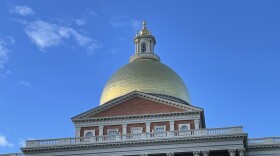If it feels like maybe Republican presidential candidates aren’t spending as much in New Hampshire as they did in the run-up to the 2008 primary, you’re onto something. Bob Sanders of the New Hampshire Business Review dug into campaign expenditures thus far, and found:
“The voting results won’t be in until January, but so far this presidential primary has been a bust for businesses in New Hampshire. As of Sept. 30, the Republican candidates have spent a total of $4.6 million directly in New Hampshire — about 36 percent of the amount spent by candidates in 2008. Yes, there were races in both parties that year, with 13 major primary candidates, but this year there are 10 major GOP candidates — or eight, if you go by the deciders of debate participants. And that should mean at least more than half of the amount spent four years ago. Final spending figures won’t be available until after the primary. In 2008, when all was said and done, candidates in both parties spent $21.1 million in the state. Republicans alone spent $12.1 million, but almost all of that is spent on consultants, fundraising and staff.”
Sanders also points out that most candidates don’t start spending serious money on the primary until around this time, anyway. And those big TV ad buys? Those mostly go to Boston outlets (that reach into New Hampshire), so you won’t see that spending in New Hampshire reports. But be that as it may, he writes that spending is still slow:
“Indeed, if 2008 is any indication, half of that ground game money is spent before the World Series is under way. And — to mix sports metaphors — this year that ground game has been stalled on the 20-yard line.”
So if it feels like you haven’t been inundated with primary mailers, ads, or (if you’re in the hospitality business) room reservations from political-types…you’re probably right.
But lest we overreact to this more frugal approach to New Hampshire campaigning, Sanders draws our attention to a study on the real economic impact of the primary.
“In the 2000 study of New Hampshire primary spending — penned by Ross Gittel, an economist at the University of New Hampshire, and Brian Gottlob, an economist and president of PolEcon Research Inc. — candidates spent about $12.6 million in the state. Add media expenditures, and the figure grew to $83 million. Add in induced expenditures and the multiplier effect, and throw in the dubious cash value that the state gets in tourism because of the image enhancement, and it all added up to $264 million in 2000. That expanded figure is about 0.6 of a percent of the state’s gross state product, or “not much more than for the Laconia Motorcycle Race Week,” according to Gottlob. Or to put it this way, direct spending by tourists in the summer of 2010 — an off year, thanks to the recession — was $1.66 billion. And that’s without any multiplier or image enhancement effect.”
There’s a lot more to Sander’s article in the New Hampshire Business Review, including a set of tables that breaks down campaign expenditures by candidate and type of expense. It’s well worth the read, and you can check it out here. For your convenience (and for further inducement to check out their piece) we’ve included the Business Review’s table of expenditures by candidate below.
New Hampshire Primary Spending*
Romney: $3,830,083
Huntsman: $401,501
Paul: $361,030
Santorum: $150,153
Bachmann: $96,875
Cain: $72,953
Pawlenty: $43,652
Gingrich: $30,788
McCotter: $29,464
Perry: $12,692
Roemer: $4,836
*As Sanders noted in his piece, these numbers are as of September 30, 2011.








